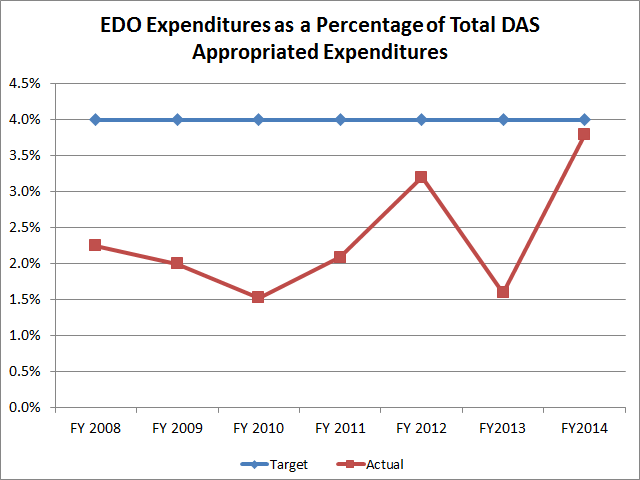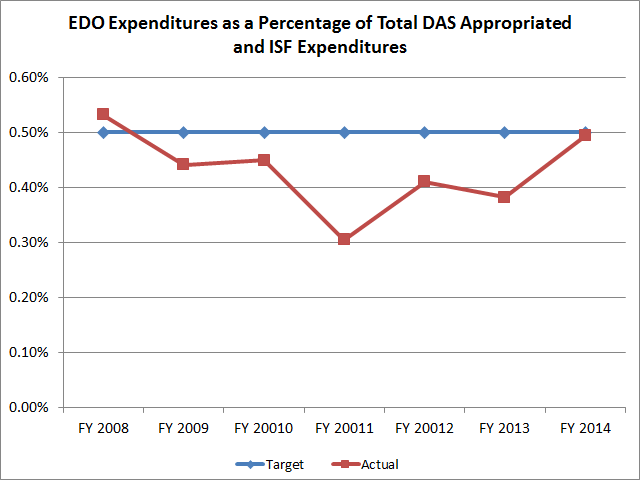The Executive Director's Office (EDO) provides financial management, strategic planning, organizational development, internal auditing, and public relations for the Department of Administrative Services. While the client base for most state agencies is taxpayers, the primary customers for the Department of Administrative Services are other state agencies. The director helps coordinate inter-agency cooperation on issues such as fleet consolidation, archival procedures, and purchasing guidelines.
During the 2015 General Session, the Legislature appropriated for Fiscal Year 2016, $1,094,500 from all sources for Executive Director. This is a 10 percent reduction from Fiscal Year 2015 revised estimated amounts from all sources. The total includes $1,094,500 from the General/Education Funds, a reduction of 8.5 percent from revised Fiscal Year 2015 estimates.
In addition to statewide compensation and internal service fund cost increases, the following appropriation adjustments were made during the 2015 General Session:
Executive Director's Office Expenditures
The primary responsibility of the Executive Director's Office is administrative oversight. Administrative overhead should be as low as possible so more dollars can be allocated to service-providing programs. The charts below show expenditures in the EDO divided by department costs.


The following sections of the Utah Administrative Services Code (UCA 63A) govern operation of the Executive Director's Office:
- UCA 63A-1-105 requires the governor to appoint the executive director with the consent of the Senate
- UCA 63A-1-105.5 gives the executive director rulemaking authority
- UCA 63A-1-106 allows the executive director to accept federal funds and bind the state to the terms of federal assistance
- UCA 63A-1-107 requires the executive director to provide administrative support to the State Building Board and State Building Ownership Authority
- UCA 63A-1-111 requires each division within the department to formulate an annual service plan describing services offered, methods of service delivery, standards of performance, and performance measures
- UCA 63A-1-114 creates a rate committee for the department's internal service funds and requires the executive director or a designee to be a member
- UCA 63A-9-301 requires the executive director or a designee to sit on the Motor Vehicle Review Committee
- UCA 63A-1-116 creates a resource stewardship position within the Executive Director's Office to work with agencies to implement best practices and stewardship measures to improve air quality.
COBI contains unaudited data as presented to the Legislature by state agencies at the time of publication. For audited financial data see the State of Utah's Comprehensive Annual Financial Reports.